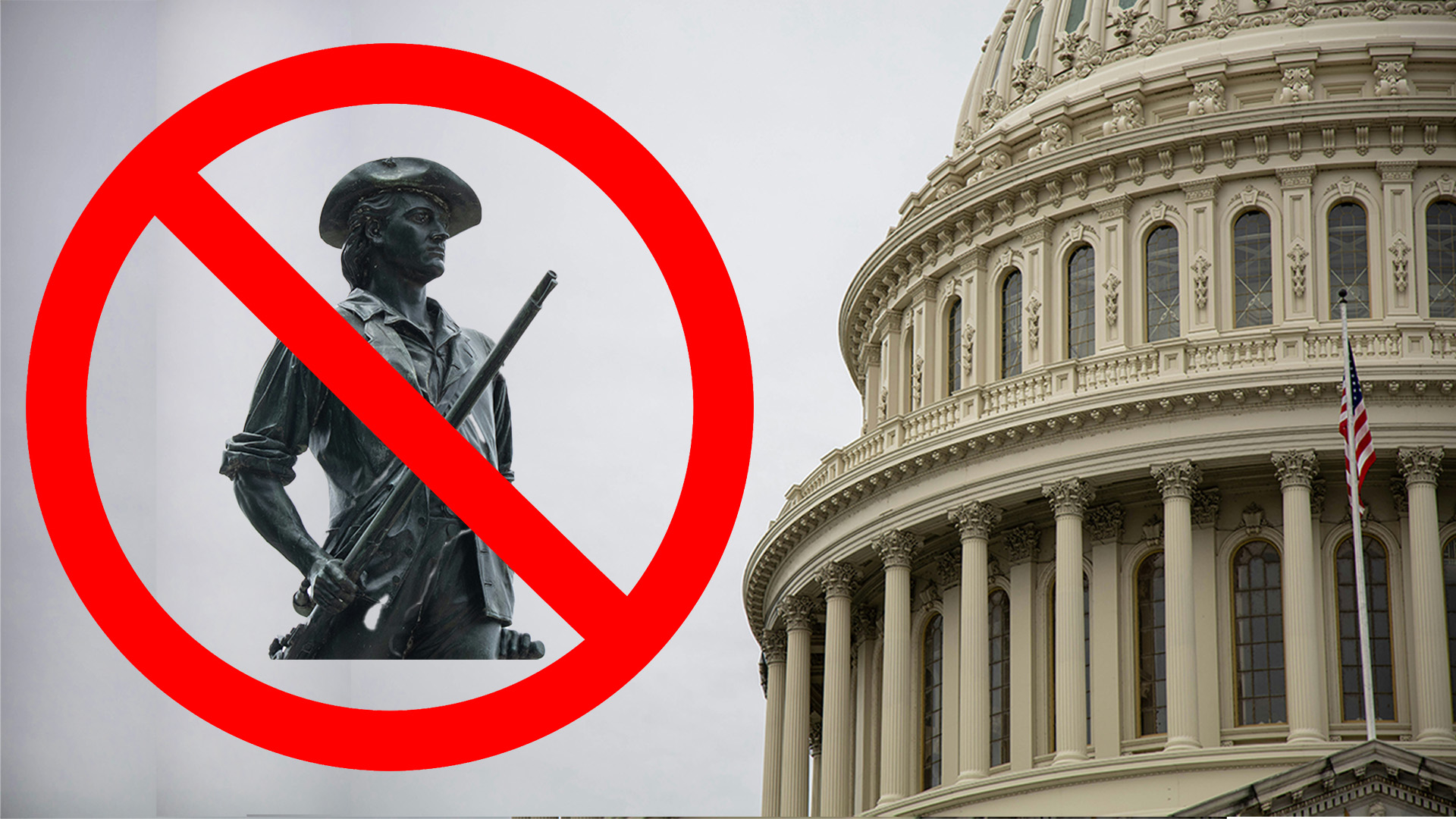From the News

416 – The Problems With The TikTok Bill
I have a lot of issues with TikTok, and it’s one social media platform I refuse to use. However, when I look at how Congress plans to deal with this problem, I see even more. I’ve also read and listened to several commentators about the bill, and find even more problems with their suggestions. So what do We the People do when our representatives in Congress have a personal vendetta against a foreign company?
Read More
414 – Disarming The Militia Act
The gun grabbers in Congress are at it again. Attempts to disarm the American people have only been moderately successful over the past few years. So a bill was recently introduced in the House of Representatives entitled “Preventing Private Paramilitary Activity Act of 2024”. This bill wants to make it a crime for private citizens to work together to defend their rights. If this bill were to become law some day, even training together could not only get you fined, but placed in jail, possibly for life.
Read More
407 – Chevron Deference
For decades, Congress has been turning over more and more lawmaking power to the Executive Branch. Frequently this is done by legislation giving the head of some agency or department the power to establish rules which have the force of law. What happens when the legislation doesn’t explicitly say that such-and-such department has the power to make a certain rule? To deal with this, courts have come up with something called “Chevron Deference”. While the case Loper Bright Enterprises, v Gina Raimondo, Secretary Of Commerce deals with who pays the salaries of federal observers on fishing boards, a more fundamental questioning of the court’s deference to government agencies interpretation of law is the cornerstone of the petitioner’s arguments.
Read More
404 – Lawsuits for Revenge and Profit?
One of the most common ways for an American to seek a redress for some grievance is to file a law suit. This has made the United States a very litigious society. I was not able to determine the number of lawsuits filed, but in 2023 there were more attorneys in the United States (1.33 million) than doctors (1.08 million). As you might imagine, it is unlikely that all of these lawsuits are legitimate.
Take for examples the case of Acheson Hotels, LLC v. Laufer. In this case, Acheson Hotels claims that Deborah Laufer filed a lawsuit against them not because she was harmed by their hotel, but because she is an activist using the Americans with Disability Act to harass companies who do not advertise whether or not they have handicapped accessible rooms. While the Supreme Court found that the case was moot, both the facts of the case and the courts decision points to what appears to be a case of Ms. Laufer using lawsuits for both revenge and profit.
Read More
403 – What is Income?
There are certain words that are so commonly used we think they have a universal understanding. One of those words is “income”. Think about it, what is income? Your paycheck? Dividends on your investments? Profits from your business? When does an increase on the value of something you own become “income”? The answer to that question is important to more than just the parties in the case Moore v. United States, but to just about every American. Can the United States tax you, as income, for the value of something you have not sold yet?
Read More
396 – Hard Cases Make Bad Precedent
There is an adage in the legal profession, “Hard cases make bad law.” Well, since cases in this country to not truly make law only precedent, you might be tempted to dismiss this saying. However, since our courts are so devoted to their precedent, we should be very careful when hard cases come to the Supreme Court. For example, one case heard by the court has a very unsavory respondent. The question is, will Mr. Zackey Rahimi’s shady past be used to infringe on the right of the rest of Americans?
Read More
395 – Social Media and Government Communications
Social media has become so much of everyday lives that we often don’t think about its use. This has led to what appears to be a large percentage of Americans developing what can at best be described as “interesting ideas” about the relationship between government and the various social media platforms. Some recent cases heard before the Supreme Court bring the question of the relationship between government actors and social media companies into question. Probably the best well known would be Missouri v. Biden, where the states of Missouri and Louisiana have brought suit claiming that members of the Biden Administration violated the First Amendment by attempting to influence what content would be deleted or deemphasized on various platforms. However, two other cases involving local officials focus on under what circumstances government actors can block access to their social media accounts. While most of the country seems to be focused on Missouri, these two cases bring up some questions the American people should really think about.
Read More
394 – Placing Politics Above Children?
Studies show that the best outcomes for children is to live in a home with their married parents. If the world were perfect, then all children would have that chance. But the world isn’t perfect, and either by accident or as the consequences of the actions of adults, children will be in need of people to step in for their parents. In our modern society, the role of finding homes for these children has been filled by the state government. What happens when those government entities place politics above the needs of their charges? A recent case in the U.S. District Court for Massachusetts deals with that very topic. Plaintiffs Michael and Catherine Burke claim that the State of Massachusetts Department of Children and Families (DCF) discriminated against them in their application to become foster parents for religious reasons. When I looked at the case what I saw wasn’t so much religious discrimination, but DCF placing political viewpoints above not only the Constitution of Massachusetts, but what is best for the children in their care.
Read More